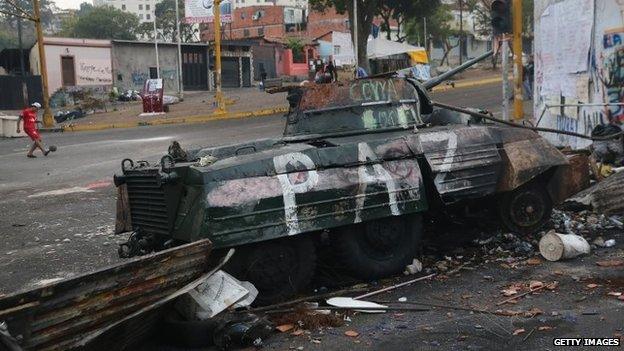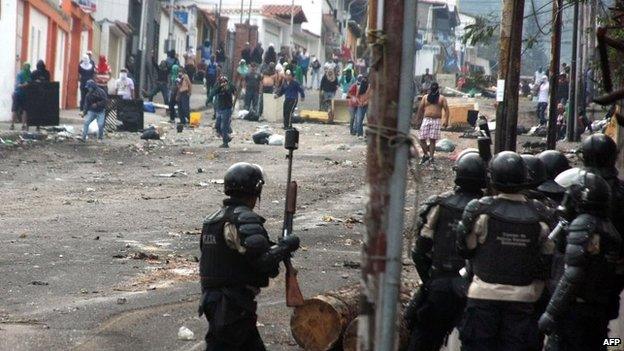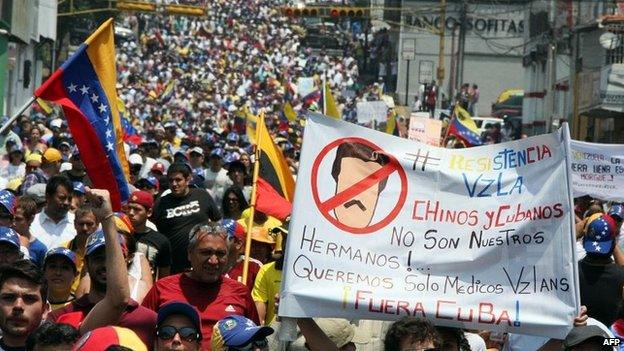Venezuela forces 'clear' protest city of San Cristobal
- Published

Many of the main streets in San Cristobal had been blocked by barricades
A top Venezuelan military commander says the security forces have retaken control of the streets in the western city of San Cristobal.
Many of the city's roads had been blocked by barricades erected as part of anti-government protests.
The wave of demonstrations, which started in San Cristobal almost two months ago, has since spread to the capital, Caracas, and other cities.
At least 39 people have been killed in protest-related violence.
The head of the National Armed Forces Strategic Operational Command, Gen Vladimir Padrino, said the police and the National Guard had "ended the curfew imposed by terrorists".
Gen Padrino said no one had been hurt in the operation to clear the barricades in avenues Carabobo, Ferrero Tamayo and Espana.

Protesters and police have been clashing in San Cristobal on an almost daily basis
The governor of Tachira state, where San Cristobal is located, welcomed the operation.
Governor Jose Vielma Mora of the governing PSUV party said that "the best present we can give to San Cristobal is the return of our children to school and of our good people to work".
The mayor of San Cristobal, Daniel Ceballos of the opposition Popular Will party, was removed from office and sentenced last week to 12 months in prison for failing to order the removal of the barricades.
Venezuela's Supreme Court ruled that Mr Ceballos had not only failed to guarantee public order but had lent his support to groups engaging in violent protests.
Growing dissent
The current wave of unrest started in San Cristobal on 4 February, when students took to the streets to protest against the alleged attempted rape of a university student.

San Cristobal is the cradle of the current wave of protests in Venezuela
After the arrest of dozens of student leaders, the protests spread to Caracas and were joined by Venezuelans disgruntled by the country's high homicide rate, skyrocketing inflation and frequent shortages of staple foods.
There have been almost daily demonstrations since, mainly in San Cristobal and Caracas, but also in other cities, such as Valencia and Merida.
At least 39 people, among them both government and opposition supporters, have died in incidents linked to the protests.
The government says "fascists" backed by foreign agents are behind the unrest, while the opposition accuses the security forces of using excessive force.
Attorney General Luis Ortega said on Friday that her office was investigating 81 cases of alleged human rights violations.
She said 17 police and military officers had been detained in connection with the allegations.
The demonstrations are the largest in a decade and many of the protesters say they will not give up until the government resigns.
Government supporters have also been holding rallies to show their backing of President Nicolas Maduro and his administration.